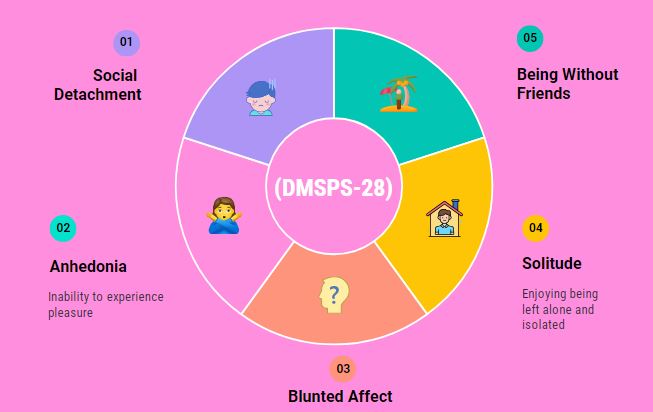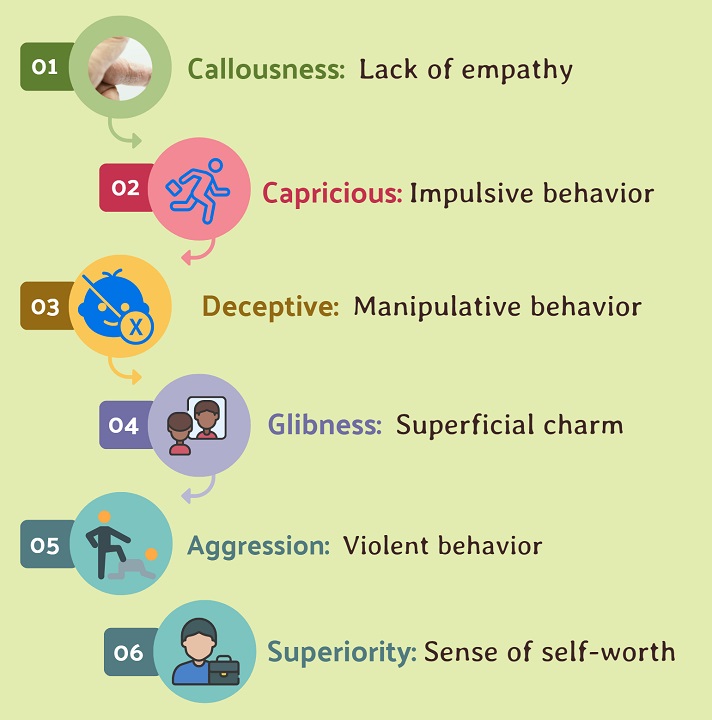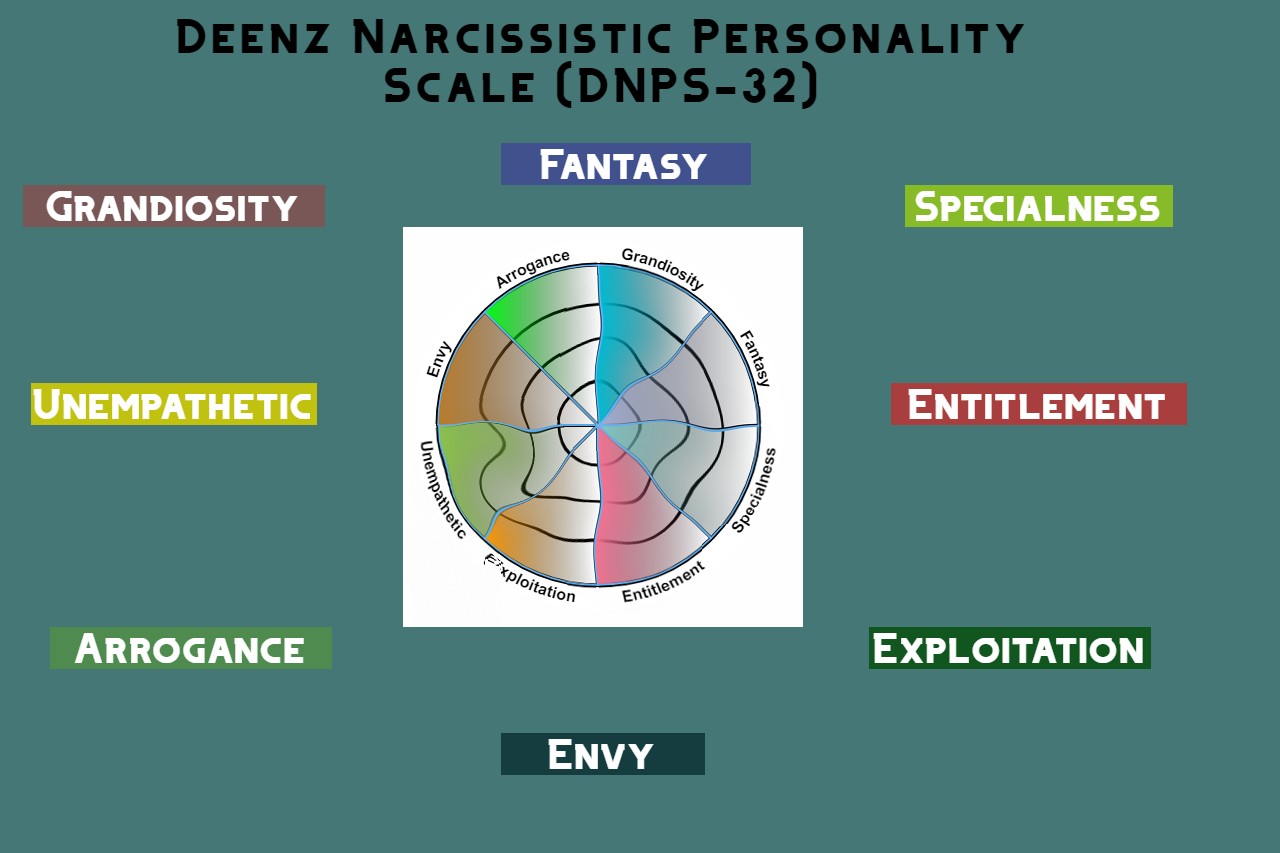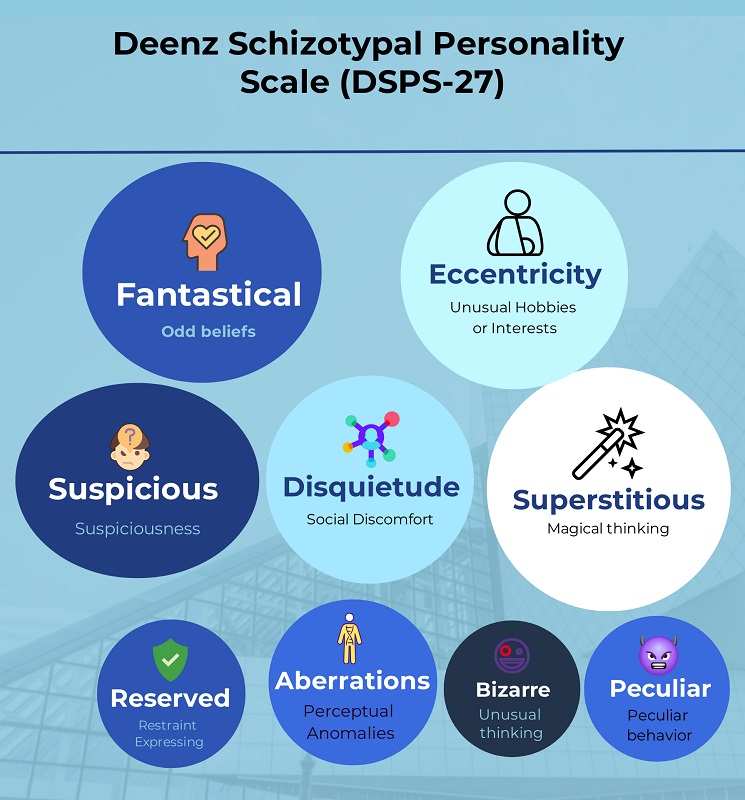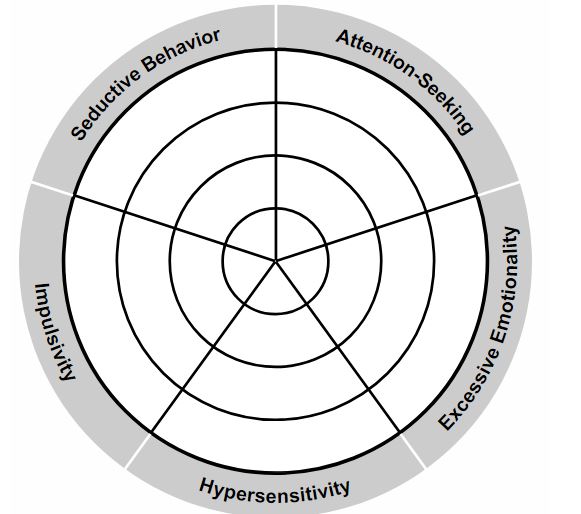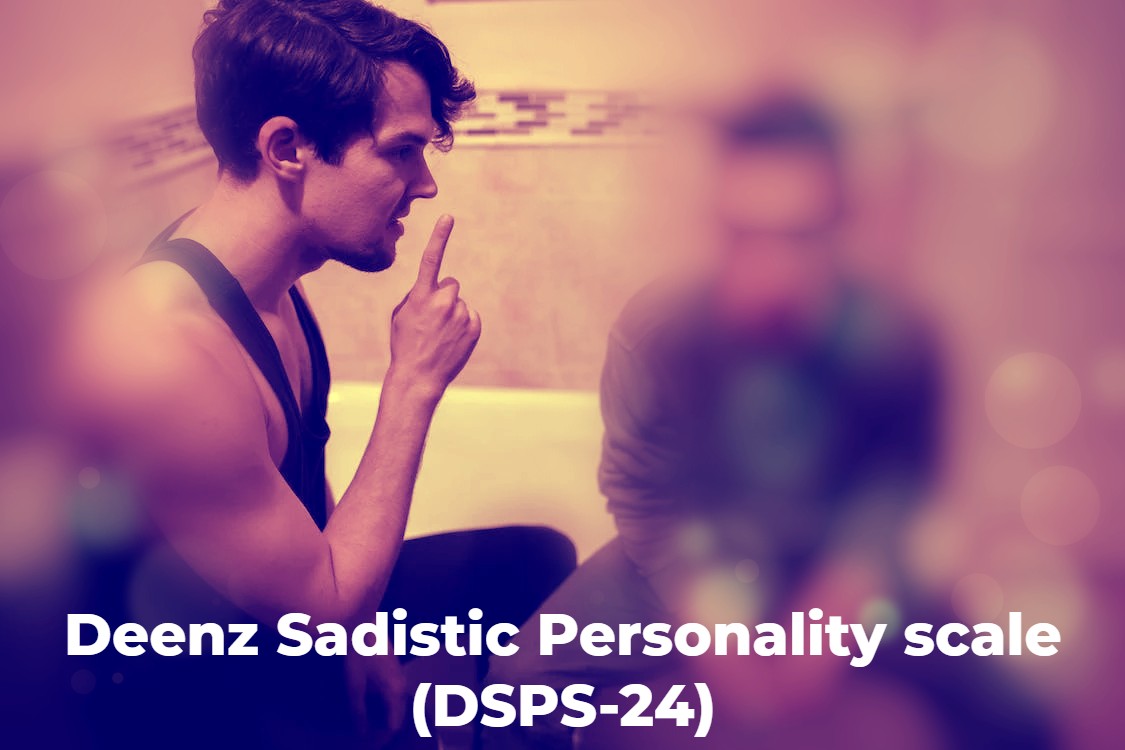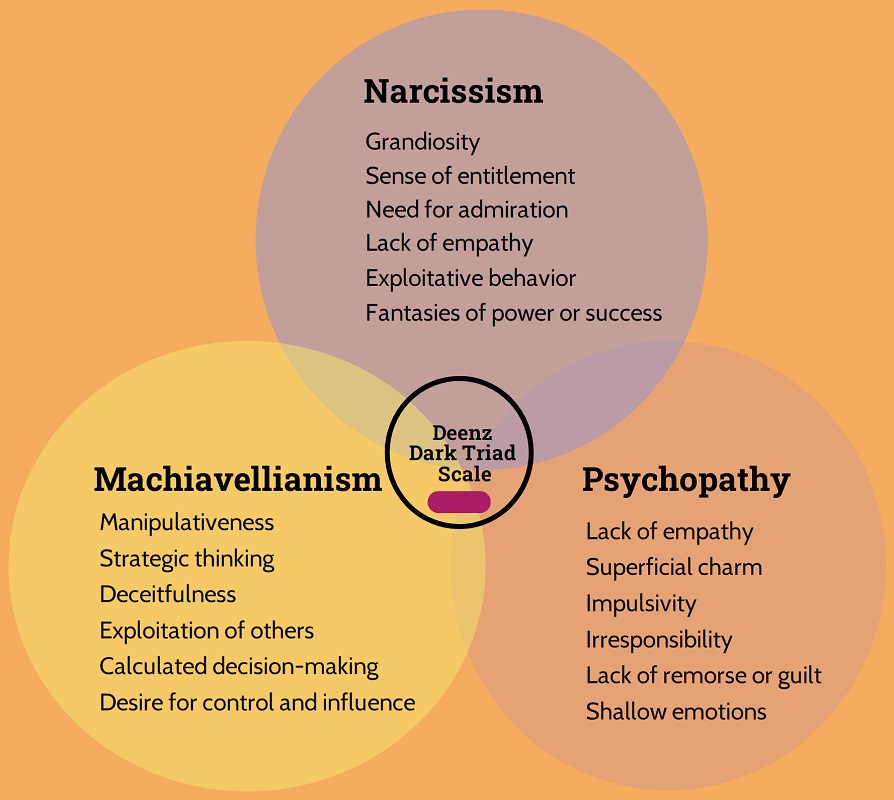Basic information | |
|---|---|
| Statements: | 28 |
| Duration: | 4–6 minutes |
| Type: | Self-assessment |
| Publishing year: | 2024 |
| Rating Scale: | 3-point Likert Scale |
| Seminal paper: | Deenz Multidimensional Schizoid Personality Scale (DMSPS-28): Measuring Multiple Facets of Schizoid Personality [Preprint] |
Schizoid Personality quiz is the digital adaptation of (DMSPS-28) which is based on the preliminary version of the research on development and validation of the scale. Participation in this self-assessment quiz is completely anonymous and no data is collected or stored for research purposes.
Schizoid personality refers to a person who often prefers staying alone and shows very little or lack interest in social relationships. People with this type of personality may appear emotionally cold and stays ways from social activities [1] Winarick, D. J. Schizoid Personality Disorder. 181-185.. They may actively avoid both close relationships and romantic ones.
Modern psychology emphasizes understanding Schizoid Personality from a multidimensional perspective, as it shares characteristics similar to other mental health conditions such as social anxiety disorder and schizophrenia [2] Bentall, R. P., Claridge, G. S., & Slade, P. D. (1989). The multidimensional nature of schizotypal traits: A factor analytic study with normal subjects. British Journal of Clinical Psychology, 28(4), 363-375.. The multidimensional aspect may lead to misdiagnosis, highlighting the need for a comprehensive scale capable of measuring all relevant traits.
The purpose of Deenz Multidimensional Schizoid Personality Scale is to measure subclinical traits and their impact on interpersonal relationships, among the general population. The primary objective is to evaluate specific traits and determine whether the participant might show indications or likelihood of developing clinical traits or schizoid personality disorder.
Schizoid personality Facets.
Social detachment: Social detachment is considered major trait of schizoid personality. The constant lack of interest in social activities and showing interest in remaining aloft, leads a person to face difficulty in maintaining and building meaningful relationships with others. The high level indication of being socially detached can indicate the person might have schizoid personality disorder but in some cases, it may be associated with other emotional responses such as stressful situation and other life circumstances.
Anhedonia: People with schizoid personality, experience anhedonia symptoms. Anhedonia in psychological perspectives, is described as the inability to experience pleasure and interest in day-to-day activities. They can’t feel pleasure in the activities which they might once found enjoyable or fulfilling. This might be a symptom of other mental health conditions such as depression, and schizophrenia. [3] Horan, W. P., Brown, S. A., & Blanchard, J. J. (2007). Social anhedonia and schizotypy: The contribution of individual differences in affective traits, stress, and coping. Psychiatry Research, 149(1-3), 147-156. If you received high score in anhedonia trait, then it means you have difficulty in finding joy and happiness in the activities you might used to love and enjoy. You can take the anhedonia test the pleasure scale.
Blunted affect: In psychiatry, blunted affect is described as the lack of emotional expressions through face, voice, and gestures. The person with blunted affect shows limited facial expressions and responds with limited emotions. The best example would be a person who receives news about a significant life event, such as winning the lottery. Normally, they should display excited expressions. However, this person doesn’t show anything; their emotional responses appear flat and lack intensity.
Solitude: Sometimes when we feel sad or down, he wish to spend time alone but people with schizoid personality are always willing and may enjoy being left alone and isolated. Solitude might be a positive experience for people who are willing to relax and enjoy their own company but excessive isolation can have a negative effect on one’s interpersonal relationships and overall wellbeing. [4] Horan, W. P., Brown, S. A., & Blanchard, J. J. (2007). Social anhedonia and schizotypy: The contribution of individual differences in affective traits, stress, and coping. Psychiatry Research, 149(1-3), 147-156. If you received a high percentage of likelihood in this trait, and along with other traits then it may be a strong indication of schizoid personality.
Friendlessness: Friendlessness is the state of being without friends and lacking interest in making friends. People with Schizoid Personality are unwilling to build social connections and enjoy being without friends. If someone does not have friends does not mean a person is suffering from any personality disorder but various factors may lead to not being social. Personal preferences or life circumstances can influence the way people build relationships with others. People with schizoid personality disorder feel the desire to be left alone and do not prefer to make friends or have romantic relationships.
References
Winarick, D. J. Schizoid Personality Disorder. 181-185. https://doi.org/10.1002/9781119547181.ch294 ↩
Bentall, R. P., Claridge, G. S., & Slade, P. D. (1989). The multidimensional nature of schizotypal traits: A factor analytic study with normal subjects. British Journal of Clinical Psychology, 28(4), 363-375. https://doi.org/10.1111/j.2044-8260.1989.tb00840.x ↩
Horan, W. P., Brown, S. A., & Blanchard, J. J. (2007). Social anhedonia and schizotypy: The contribution of individual differences in affective traits, stress, and coping. Psychiatry Research, 149(1-3), 147-156. https://doi.org/10.1016/j.psychres.2006.06.002 ↩
Meehan, K. B., Levy, K. N., Temes, C. M., & Detrixhe, J. J. Solitude and Personality Disorders. 427-444. https://doi.org/10.1002/9781118427378.ch24 ↩





